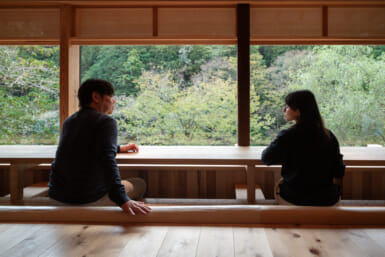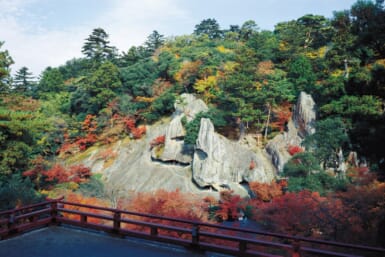by Dr. Joseph A. Precker
“Dear Dr. Precker: I had a great holiday trip at Christmas time and saw friends and family. Aside from typical family fights, it was a really good experience. Then I had a terrific New Year’s Eve with old buddies. In spite of a terrible hangover the next day, I really enjoyed it. Then, after a crowded (and delayed) flight and the worst case of jet-lag I’ve ever had, I started back to work on Jan. 6, full of enthusiasm, ready to change the world. Now, just a few short weeks later, I feel worn out, dejected, without enthusiasm or interest in anything. What could be the matter?”
Dear Dejected: What you describe is a very characteristic pattern, particularly among westerners. First of all, we tend to have exaggerated expectations for Christmas and New Year, looking forward to them for many months in advance, particularly if we are “going home” after a long absence (which, it seems, is what you did). You had a good time, you say (in spite of “typical family fights”). However, many people feel considerable disappointment at Christmas time, since the reality often does not live up to their great expectations. As a matter of fact, Christmas is often a period of extreme family turbulence, with old issues arising “out of the woodwork,” so to speak, with old rivalries, competition and anger emerging.
Often enough, this may lead to family break-ups or, increasingly, the need to arrange crisis intervention for the family, or selected members of the family, with a qualified professional. Did you really have a great time at home, or are you covering up the discord (perhaps exemplified in the “typical family fights”) with a veneer designed to maintain the image of the “perfect family,” as so many Americans tend to do?
New Year’s Eve can be a wonderful time, seeing out the old, cheering in the new. Yet, it can also be a hysterical event, with hidden hopes that “all will change” on January First. Again, the hysteria and high hopes can lead to profound dejection in the days following … (My own formula for a rewarding New Year’s Eve is to have a glass of champagne just before midnight, with only one or two or three warm friends, go to bed and get up at dawn to write at least five new poems to “start the new year right.”)
Your enthusiasm at work on the first day back, accompanied by your feeling that you were “ready to change the world,” is quite understandable after a holiday, with a sense of cleaning the slate. However, one of the great realities of work (and the world!) is that many things cannot be changed, quickly and easily. There are old routines, systems, people—even ourselves—actively resisting change. Much change, even that which appears to be rapid, is the result of a persistent uphill struggle against forces of inertia, as well as against vested interest. (Wherever there are human beings, there are “vested interests,” no matter how well-intentioned people are—or seem to be…)
Furthermore, mid-to-late January and February are times when the mid-winter blues hit many people. If the depression is profound, it may be SAD (Seasonal Affective Disorder), which has earned a place in psychiatric diagnostic manuals. There are some people who experience sadness verging on clinical depression, often starting as early as November, and lasting into March or even April. Some authorities believe that SAD is a result of melanin-related factors, and prescribe a light-box, in front of which the sufferer sits for one or more hours per day—often with good results. (Are the results good because of the attentions of a physician, or because there’s a name for—and explanation of—the symptoms, or because it’s “biological” and therefore not the responsibility of the individual?)
Most of us are not suffering from SAD, but just from lack of exercise, too much cold (particularly in Japanese houses!), not much to do or to look forward to, at least until the beginning of spring. What I recommend is that you start searching for the first ume tree (plum blossom) near your house or office. Fortunately, in Tokyo spring begins to entice us as early as mid-February. It’s amazing what the sight of a row of ume in full bloom can do to one’s morale. Far more than a light-box, I believe! Failing that, bonsai are on sale right now, which feature ume already in full bloom, or ready to burst into flower very soon…
If your dejection and lassitude are profound, then it may be time to visit an experienced professional— one not afraid to look at the dark side of life with you, and not just giving you the mumbo-jumbo of “positive thinking” —in order to explore your present life situation, your aspirations, your frustrations and your characteristic ways of achieving (or avoiding!) issues, goals, relationships. Mid-winter is often a time when many of us feel lost, at sea without a rudder.
Good luck! Be of good cheer. As Keats said, although he died in his 23rd year, “If winter’s here, can spring be far behind?”
P.S. There’s already one plum-blossom on a bonsai in my garden, in the snow—and someone just told me they passed a whole row of ume is in full bloom on the train to my office!








